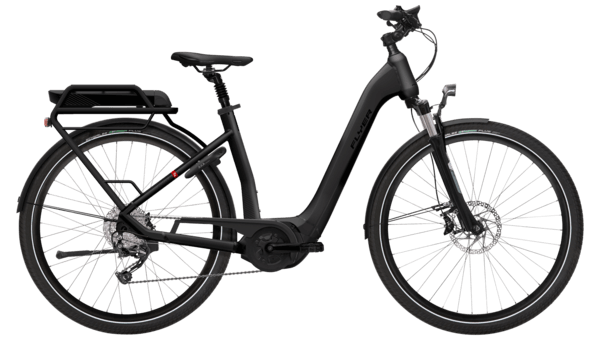
-
 Afrikaans
Afrikaans -
 Albanian
Albanian -
 Amharic
Amharic -
 Arabic
Arabic -
 Armenian
Armenian -
 Azerbaijani
Azerbaijani -
 Basque
Basque -
 Belarusian
Belarusian -
 Bengali
Bengali -
 Bosnian
Bosnian -
 Bulgarian
Bulgarian -
 Catalan
Catalan -
 Cebuano
Cebuano -
 Corsican
Corsican -
 Croatian
Croatian -
 Czech
Czech -
 Danish
Danish -
 Dutch
Dutch -
 English
English -
 Esperanto
Esperanto -
 Estonian
Estonian -
 Finnish
Finnish -
 French
French -
 Frisian
Frisian -
 Galician
Galician -
 Georgian
Georgian -
 German
German -
 Greek
Greek -
 Gujarati
Gujarati -
 Haitian Creole
Haitian Creole -
 hausa
hausa -
 hawaiian
hawaiian -
 Hebrew
Hebrew -
 Hindi
Hindi -
 Miao
Miao -
 Hungarian
Hungarian -
 Icelandic
Icelandic -
 igbo
igbo -
 Indonesian
Indonesian -
 irish
irish -
 Italian
Italian -
 Japanese
Japanese -
 Javanese
Javanese -
 Kannada
Kannada -
 kazakh
kazakh -
 Khmer
Khmer -
 Rwandese
Rwandese -
 Korean
Korean -
 Kurdish
Kurdish -
 Kyrgyz
Kyrgyz -
 Lao
Lao -
 Latin
Latin -
 Latvian
Latvian -
 Lithuanian
Lithuanian -
 Luxembourgish
Luxembourgish -
 Macedonian
Macedonian -
 Malgashi
Malgashi -
 Malay
Malay -
 Malayalam
Malayalam -
 Maltese
Maltese -
 Maori
Maori -
 Marathi
Marathi -
 Mongolian
Mongolian -
 Myanmar
Myanmar -
 Nepali
Nepali -
 Norwegian
Norwegian -
 Norwegian
Norwegian -
 Occitan
Occitan -
 Pashto
Pashto -
 Persian
Persian -
 Polish
Polish -
 Portuguese
Portuguese -
 Punjabi
Punjabi -
 Romanian
Romanian -
 Russian
Russian -
 Samoan
Samoan -
 Scottish Gaelic
Scottish Gaelic -
 Serbian
Serbian -
 Sesotho
Sesotho -
 Shona
Shona -
 Sindhi
Sindhi -
 Sinhala
Sinhala -
 Slovak
Slovak -
 Slovenian
Slovenian -
 Somali
Somali -
 Spanish
Spanish -
 Sundanese
Sundanese -
 Swahili
Swahili -
 Swedish
Swedish -
 Tagalog
Tagalog -
 Tajik
Tajik -
 Tamil
Tamil -
 Tatar
Tatar -
 Telugu
Telugu -
 Thai
Thai -
 Turkish
Turkish -
 Turkmen
Turkmen -
 Ukrainian
Ukrainian -
 Urdu
Urdu -
 Uighur
Uighur -
 Uzbek
Uzbek -
 Vietnamese
Vietnamese -
 Welsh
Welsh -
 Bantu
Bantu -
 Yiddish
Yiddish -
 Yoruba
Yoruba -
 Zulu
Zulu
Types and Applications of Thread Rolling Machines for Various Industries
Types of Thread Rolling Machines
Thread rolling is a manufacturing process that is widely used to produce screw threads, bolts, and other fasteners. This method has gained popularity due to its efficiency, strength, and cost-effectiveness compared to traditional machining processes. Thread rolling machines are at the heart of this process, and they come in various types to cater to different manufacturing needs. In this article, we will explore the main types of thread rolling machines and their applications.
1. Flat Die Thread Rolling Machines
Flat die thread rolling machines use two flat surfaces to create threads on the workpiece. This machine type is ideal for producing large batches of small to medium-sized threads at high speeds. The workpiece is placed between the flat dies, which move together with a reciprocating motion to form the threads. Flat die machines are commonly used for rolling external threads on components like set screws, nuts, and bolts. They are favored for their simplicity, efficiency, and ability to produce precise threads with a high degree of surface finish.
2. Circular Thread Rolling Machines
Circular thread rolling machines utilize two circular dies to roll threads onto a workpiece. This method is particularly effective for producing long and continuous threads with uniform depth and pitch. Circular machines are suitable for rolling both external and internal threads and are often used in the production of hydraulic hoses, pipe fittings, and other cylindrical components. These machines can accommodate a wide range of materials, including metals and plastics, making them versatile in various industries. The continuous feed capability of circular thread rolling machines enhances productivity and reduces manufacturing time.
3. Hydraulic Thread Rolling Machines
types of thread rolling machine quotes

Hydraulic thread rolling machines utilize hydraulic power to create the necessary force for thread rolling. These machines can produce complex thread designs with high precision and are especially advantageous for rolling large workpieces. The hydraulic system allows for adjustable pressure, enabling the machine to handle various materials and thread specifications. Hydraulic thread rolling machines are commonly used in the automotive, aerospace, and construction industries due to their robustness and ability to produce high-strength fasteners.
4. Thread Rolling Machine with CNC Capabilities
Computer Numerical Control (CNC) thread rolling machines represent a significant advancement in thread manufacturing technology. These machines are equipped with computerized controls that allow for precise adjustments in thread depth, pitch, and other parameters. CNC machines can produce complex and intricate thread designs with ease, making them suitable for low and high-volume production. The ability to store multiple program settings also means that manufacturers can switch between different thread specifications quickly. CNC thread rolling machines are widely used in industries requiring high precision and customization, such as medical devices and specialized automotive components.
5. Multi-Station Thread Rolling Machines
Multi-station thread rolling machines are designed for high-volume production runs, where multiple steps of the thread-rolling process occur simultaneously. These machines feature several stations that handle different operations, such as forming, trimming, and finishing threads in one continuous process. By streamlining production steps, multi-station machines significantly reduce cycle time and enhance efficiency. They are especially beneficial for large-scale manufacturing facilities that require consistent quality and output.
Conclusion
The choice of thread rolling machine depends on various factors, including the type of threads needed, the volume of production, material specifications, and the level of precision required. From flat die machines to advanced CNC systems, each type offers unique advantages and applications. As technology continues to evolve, thread rolling machines are expected to become even more efficient and versatile, meeting the demands of an ever-growing manufacturing landscape. Understanding the different types of thread rolling machines is essential for manufacturers looking to optimize their production processes and maintain a competitive edge in the industry.
